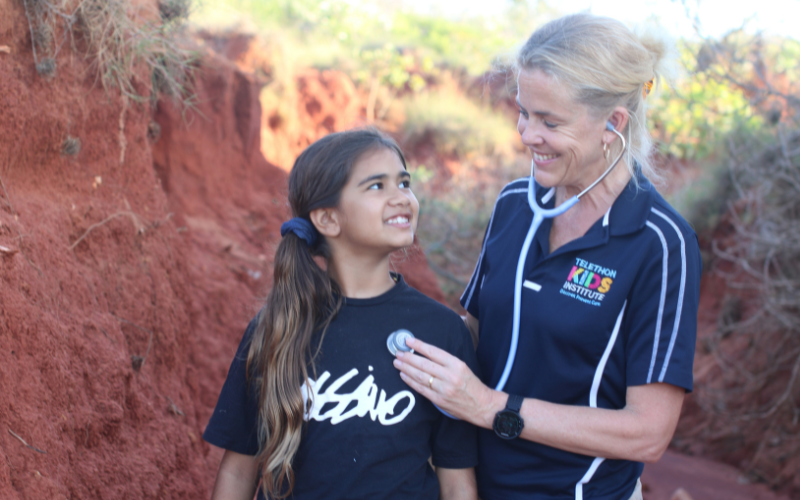Search
Showing results for "aboriginal respiratory"

News & Events
New trial aims to nip chronic lung disease in the bud for First Nations kidsWA researchers will use a $1.97 million Medical Research Future Fund grant to develop a strategy for better follow-up of First Nations children after they’ve been hospitalised for respiratory infections, in a bid to halt the slide into more severe lung disease.

Results from a world first-study measuring prevalence of chronic wet cough and protracted bacterial bronchitis in four Kimberley Aboriginal communities have highlighted the enormity of the health problem.
Research
ERS technical standard on bronchial challenge testing: General considerations and performance of methacholine challenge testsThis international task force report updates general considerations for bronchial challenge testing and the performance of the methacholine challenge test.
Research
The all-age spirometry reference ranges reflect contemporary Australasian spirometryAdvances in statistical modelling have allowed the creation of smoothly changing spirometry reference ranges that apply across a wide age range and better...
Research
Prevalence of chronic wet cough and protracted bacterial bronchitis in aboriginal childrenStrategies to address reasons for and treatment of chronic wet cough and protracted bacterial bronchitis in young Aboriginal children in remote north Western Australia are required
Research
Many Healthy LungsIn partnership with Derbarl Yerrigan Health Service and the Broome Regional Aboriginal Medical Service, we aim to improve Aboriginal lung health by determining for the first time the baseline lung function of Aboriginal Australians.
Research
Key paediatric messages from the 2018 European Respiratory Society International CongressGroup Chairs and early career members highlight some of the most interesting findings in the field of paediatrics presented at the 2018 international ERS Congress
Research
Identifying pediatric lung disease: A comparison of forced oscillation technique outcomesThese findings suggest the utility of specific FOT outcomes is dependent on the respiratory disease being assessed
Research
Personalised, machine learning based prediction of asthma in childrenThis study aims to show that asthma and allergies in individuals can be predicted before it occurs based on individual family history and information on the early environment.

News & Events
Wal-yan respiratory researchers presented with prestigious awardsFour outstanding researchers from the Wal-yan Centre - Professor André Schultz, Professor Stephen Stick, Rebecca Watson and Michael Beaven - have been presented with prestigious awards in acknowledgement of their research aimed at improving the lives of children with respiratory illness.
